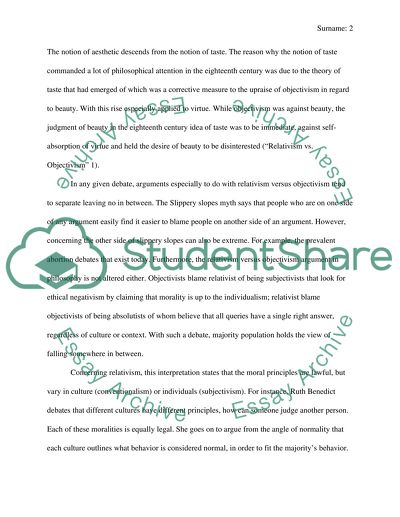Cite this document
(“Aesthetic relativism versus aesthetic objectivism Essay”, n.d.)
Retrieved from https://studentshare.org/philosophy/1498273-aesthetic-relativism-versus-aesthetic-objectivism
Retrieved from https://studentshare.org/philosophy/1498273-aesthetic-relativism-versus-aesthetic-objectivism
(Aesthetic Relativism Versus Aesthetic Objectivism Essay)
https://studentshare.org/philosophy/1498273-aesthetic-relativism-versus-aesthetic-objectivism.
https://studentshare.org/philosophy/1498273-aesthetic-relativism-versus-aesthetic-objectivism.
“Aesthetic Relativism Versus Aesthetic Objectivism Essay”, n.d. https://studentshare.org/philosophy/1498273-aesthetic-relativism-versus-aesthetic-objectivism.


